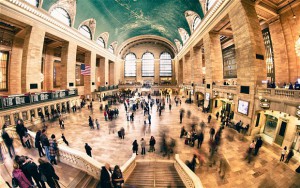I decided to call my dad to talk about his thoughts on the issue of Climate Change. I started out with a simple question, I asked him, “What is Climate Change?”
His answer : when you have things happening that don’t make sense. He talked about the ice caps in Antarctica and Greenland melting. The winters in America have been scary, with the severity of the cold and the snow. My dad lives in Orlando, Florida and when I asked him about what this past winter was like he said: It was 29 degrees one day, it’s not supposed to be that cold in Orlando. he thought something was wrong, It’s normal for it to be 29 in Buffalo, it’s normal for it to be 29 in Pittsburgh, however it’s NOT normal for it to be 29 in Orlando.
I have 11 year old twin brothers and they also live in Orlando with my dad. When I asked my dad if they knew about climate change and global warming he said well… they’re 11. As if they’re too young to know and understand what exactly is happening. You wouldn’t expect an 11 year old to know much about global warming but maybe thats something that needs to change. He said they vaguely knew about what it was, and have inquired about it as kids do, (we all know kids love asking questions) but he said that they learn about it at school.
Because of climate change, they went from a Jeep Commander (a gas guzzler if I’ve ever seen one) to a Kia optima, less gas and more efficient. America is all about the bigger the better. You could go into any parking lot and you’d mostly see SUVs, trucks and minivans. But we are entering a time now that you see more and more cars like the prius and other smaller cars around. America’s car crazy culture coincide with the rest of the world, Europe has been making smaller cars for a long time. America’s mantra is “the bigger the better” our cars were bigger, our houses were bigger, our desire to be the “best” has maybe been one of our gravest mistakes seeing as now we are the leading country in greenhouse gas emission.
I asked him what he thought the world might look like 50 years from now. He thinks that if the world is still in the throws of denying climate change then the world is going to be a mess. He believes it is our duty to change the world for a better future for our kids and their kids and so on and so forth. You don’t want to put the world in a state that you wouldn’t be okay with your most loved ones living in.
When I asked what he thought he could do to make a difference, his answer entailed many of the things that we have talked about and already know to do to make a change: smaller cars and being more conscientious of conserving energy where we can.
When coming across a person who denies that climate change is real, what would you say to them to convince them otherwise?
He said to take a look at our seasons. The seasons aren’t what they used to be, the droughts, the blizzards, polar vortex (cold air coming down from canada) and various natural disasters are things we’re slowly becoming desensitized to because of how frequently we here about them on the news.
It’s hard to believe that people don’t believe the scientists that dedicate their lives studying and proving that this issue exists. He thinks, that the evidence proving global warming to be real, greatly outweighs any evidence to the contrary.

